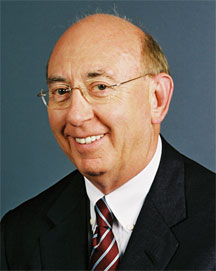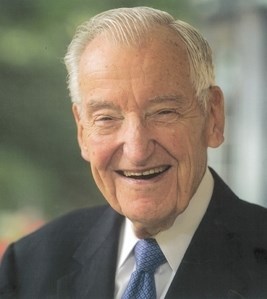History
1838 - Hampden-Sydney College created the Medical Department.
1854 – The Medical Department became the Medical College of Virginia (MCV) after receiving an independent charter from the Virginia General Assembly.
1860 – MCV became state-affiliated.
1917 – The Richmond School of Social Work and Public Health was established on what is known today as VCU's Monroe Park Campus.
1925 – The Richmond School of Social Work and Public Health became the Richmond division of the College of William and Mary.
1939 – The Richmond School of Social Work and Public Health changed its name to Richmond Professional Institute.
1939 – A tumor board and a multidisciplinary tumor clinic were established at MCV.
1962 – Richmond Professional Institute separated from William and Mary to become an independent state institution.
1966 –The Divisions of Surgical Oncology and Medical Oncology were created within the Departments of Surgery and Medicine, respectively, at MCV.
1968 – MCV merged with the Richmond Professional Institute to form Virginia Commonwealth University (VCU); MCV became the health sciences campus of VCU, called the MCV Campus.
1974 – The VCU Board of Visitors established a cancer center on the MCV Campus and a planning grant was received from the National Cancer Institute (NCI).
1975 – The first Cancer Center Support Grant (CCSG) was funded by the NCI, with Walter Lawrence, Jr., M.D., a surgeon and former president of the American Cancer Society, as principal investigator and director of the cancer center.
1983 – The cancer center was named VCU Massey Cancer Center in honor of a major gift by William and Evan Massey.
1986 – North Hospital (renovated former E.G. Williams Hospital) opened, which today houses VCU Massey Cancer Center's Dalton Oncology Clinic, Radiation Oncology Department, BMT in-patient and out-patient clinics and Thomas Palliative Care Unit.
1987 – The Department of Radiation Oncology was established.
1988 – I. David Goldman, M.D., now director of Albert Einstein Cancer Center at Yeshiva University, became director of VCU Massey Cancer Center.
1993 – The Schools of Medicine and Basic Health Sciences merged.
1995 – Francis Macrina, Ph.D., now vice president for research at VCU School of Dentistry, became interim director of VCU Massey Cancer Center.
1997 – Gordon D. Ginder, M.D., former associate director of the University of Minnesota Cancer Center, became director of VCU Massey Cancer Center.
2006 – VCU Massey Cancer Center opened Goodwin Research Laboratory, an 80,000-square-foot, state-of-art cancer research facility.
2008 – VCU Medical Center opened the Critical Care Hospital, which includes VCU Massey Cancer Center's in-patient oncology care unit.

Virginia Commonwealth University (VCU) is a public research university in Richmond, Virginia. VCU was founded in 1838 as the medical department of Hampden–Sydney College, becoming the Medical College of Virginia in 1854. In 1968, the Virginia General Assembly merged MCV with the Richmond Professional Institute, founded in 1917, to create Virginia Commonwealth University. In 2022, more than 28,000 students pursued 217 degree and certificate programs through VCU's 11 schools and three colleges. The VCU Health System supports health care education, research, and patient care. It was the only school in the South to have graduated a class every year during the Civil War.
The University of Texas Southwestern Medical Center is a public academic health science center in Dallas, Texas. With approximately 23,000 employees, more than 3,000 full-time faculty, and nearly 4 million outpatient visits per year, UT Southwestern is the largest medical school in the University of Texas System and the State of Texas.
NCI-designated Cancer Centers are a group of 72 cancer research institutions in the United States supported by the National Cancer Institute.

Steven Kenneth Libutti, M.D., F.A.C.S. is an American surgeon and scientist. In January 2017, he became the third permanent Director of the Rutgers Cancer Institute of New Jersey, Vice Chancellor for Cancer Programs for Rutgers Biomedical and Health Sciences and the Senior Vice President for Oncology Services for RWJBarnabas Health, the largest health system in New Jersey. He is a tenured Distinguished Professor of Surgery at the Rutgers Robert Wood Johnson Medical School. Libutti's work on the study of tumor angiogenesis and the tumor microenvironment has led to novel approaches for the treatment of cancer. He is also one of the pioneers of regional and targeted cancer therapy.
The Society for Immunotherapy of Cancer (SITC), previously known as the International Society for Biological Therapy of Cancer (iSBTc), is a professional society of scientists, academicians, researchers, clinicians, government representatives, and industry leaders from around the world dedicated to improving outcomes in patients with cancer by advancing the science and application of cancer immunotherapy. Currently, SITC has more than 2,400 members, representing 22 medical specialties from 42 countries around the world, who are engaged in the research and treatment of cancer.

John E. Niederhuber, MD was the 13th director of the National Cancer Institute (NCI), from 2006 until July, 2010, succeeding Andrew von Eschenbach, who went on to become a director at biotechnology firm BioTime. A nationally renowned surgeon and researcher, Dr. Niederhuber has dedicated his four-decade career to the treatment and study of cancer - as a professor, cancer center director, National Cancer Advisory Board chair, external advisor to the NCI, grant reviewer, and laboratory investigator supported by NCI and the National Institutes of Health. He is now Executive Vice President/CEO Inova Translational Medicine Institute and Inova Health System and co-director, Johns Hopkins Clinical Research Network.
The University of Wisconsin Carbone Cancer Center (UWCCC) is a comprehensive cancer center in Wisconsin, as designated by the National Cancer Institute (NCI), the lead federal agency for cancer research. It is an integral part of both the University of Wisconsin (UW) and the University of Wisconsin Hospital and Clinics. It is located in Madison, Wisconsin.

The Virginia Commonwealth University School of Medicine is the medical school of Virginia Commonwealth University, a public research university in Richmond, Virginia. It is the largest and oldest continuously operating medical school in Virginia. The school traces its beginnings to the 1838 opening of the medical department of Hampden–Sydney College, which in 1854 became an independent institution known as the Medical College of Virginia (MCV). In 1968, MCV joined with the Richmond Professional Institute to form Virginia Commonwealth University. The School of Medicine is one of six schools on VCU's MCV Campus, which includes the VCU Medical Center and Children's Hospital of Richmond at VCU.

The VCU Medical Center is Virginia Commonwealth University's medical campus located in downtown Richmond, Virginia, in the Court End neighborhood. VCU Medical Center used to be known as the Medical College of Virginia (MCV), which merged with the Richmond Professional Institute in 1968 to create Virginia Commonwealth University. In the 1990s, the Medical College of Virginia Hospitals Authority was created to oversee MCV Hospitals. In 2004, the name of this authority was changed to the VCU Health System, and the MCV Hospitals and surrounding campus were named the VCU Medical Center. The authority oversees the employees and real estate occupied by the five schools within the VCU Medical Center. It was at this time that the MCV Campus moniker was created.
The School of Nursing at Virginia Commonwealth University offers academic programs from the baccalaureate to doctoral level. Established in 1893, the School is part of a leading academic health sciences center on the Medical College of Virginia (MCV) Campus. Programs include: Baccalaureate: Traditional B.S., Accelerated B.S., and RN to B.S. (online); Master's - Family NP, Adult-gerontology Primary Care NP, Adult-gerontology Acute Care NP, Psychiatric and Mental Health NP, and Nursing Administration and Leadership (online); Post-master's Certificates; and Doctoral - Ph.D. and DNP.
The Virginia Commonwealth University College of Health Professions, formerly known as the School of Allied Health Professions, is a school of health professions located in the United States city of Richmond. The school is part of Virginia Commonwealth University and is located on VCU's MCV Campus. It is one of only 116 member institutions in the Association of Schools of Allied Health Professions in the U.S.
The history of Virginia Commonwealth University began in 1838, when the Medical College of Virginia was founded. In 1967 the Medical College of Virginia and the Richmond Professional Institute merged to become one, single university in Richmond, Virginia. Five presidents have served the institution since its merger and creation. VCU's medical school is the oldest continually operating medical school in the South; it created the first school of Social work in the South; and it is has the only school of dentistry in Virginia
Gibbs Cancer Center & Research Institute is a cancer treatment and research facility in Upstate South Carolina. Gibbs Cancer Center is associated with the NCI Community Cancer Centers Program and the Medical University of South Carolina. Gibbs has several locations across the upstate of South Carolina, including Comprehensive Cancer Centers at both Spartanburg Medical Center and Pelham Medical Center. Additional infusion facilities are located in Gaffney, Union, Mary Black and North Grove.

The George Mason–VCU rivalry is a college sports rivalry between the VCU Rams of Virginia Commonwealth University and the George Mason Patriots of George Mason University. Both universities are present members of the Atlantic 10 Conference, and for a majority of their rivalry history, members of the Colonial Athletic Association.

Seattle Cancer Care Alliance (SCCA) is a cancer treatment and research center in Seattle, Washington. Established in 1998, this nonprofit provides clinical oncology care for patients treated at its three partner organizations: Fred Hutchinson Cancer Research Center, Seattle Children's and UW Medicine. Together, these four institutions form the Fred Hutch/University of Washington Cancer Consortium.

Elizabeth M. Jaffee is an American oncologist specializing in pancreatic cancer and immunotherapy.

Michael L. Hess was an American professor of cardiology and physiology at the Medical College of Virginia (MCV) who was instrumental in founding the International Society for Heart and Lung Transplantation (ISHLT), of which he served as its first president.

Walter Lawrence Jr. was an American surgical oncologist at Memorial-Sloan-Kettering Cancer Center, Cornell Medical College, and at the Medical College of Virginia. He was a leader in civil rights health equity efforts.

Susanne Berthe Hirt was a physical therapist and professor at the Medical College of Virginia (MCV). She helped develop the School of Physical Therapy at MCV and became chair of the department and later a Professor Emeritus. She received the Mary McMillan Lecture Award from the American Physical Therapy Association in 1981.

Robert A. Winn is an American oncologist who is the Director and Lipman Chair in Oncology at the Virginia Commonwealth University Massey Cancer Center. His research considers the cellular mechanisms that drive the development of lung cancer. He has also investigated health disparities in cancer treatment and the development of strategies to eliminate mistrust amongst African-American communities.











